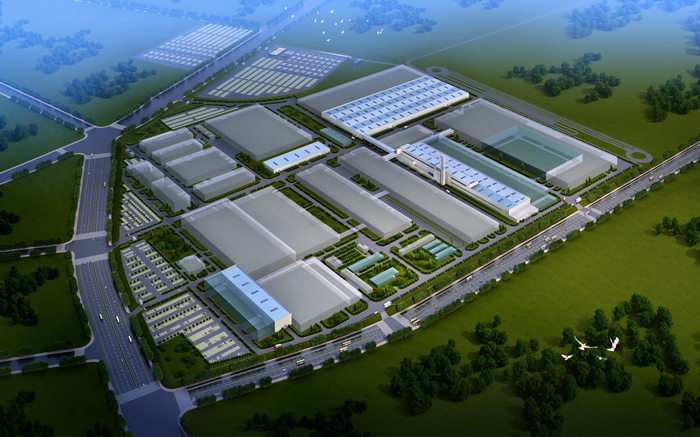SAIC Motor builds customized smart car factory

A ground-breaking ceremony for SAIC Maxus commercial vehicle factory, a cooperation between SAIC Motor and the Jiangsu provincial government, was held in Jiangning High-tech Industrial Park, Nanjing on April 15.
The project is a apart of SAIC Motor’s efforts to develop its business in Nanjing and boost regional industrial growth, focusing on R&D for domestic and overseas vehicles, traditional and new energy cars. Taking advantage of cooperation with Alibaba, SAIC Motor plans to equip the factory products with advanced internet of vehicles and intelligent driving, and allow mass intelligent customization.
SAIC Maxus, a subsidiary of SAIC Motor, will have the first plant in the country to be able to produce large-scale customized and smart vehicles via a "customer to business" (C2B) model.
The first-phase of the project will cost 3.19 billion yuan ($467.87 million) and cover 114,560 square meters, and will target the global minivan market. Upon completion, its annual production capacity will be 150,000 vehicles. The second phase project will go into production in 2020, with an expected annual production capability of 400,000 vehicles and an output value of 35 billion yuan.
Apart from the increase in capacity, the new project highlights SAIC Motor’s strategic layout which aims to promote four trends - electrification, connection, intelligence and sharing. The four trends will be applied across the whole industrial chain, from planning to production.
Mass intelligent customization focuses on meeting the needs of both massive production and tailored demands, which requires seamless connections between producers and providers.
The soon-launching SUV D90 concept car may be the best illustration of SAIC Maxus’s efforts to transform the auto industry from a"business to customer" (B2C) model, where the car manufactures make large-scale production of vehicles and market them to the customers, to C2B, where users' participation becomes an essential part of car making, with individual demand taken into full account.
Thus the factory will definitely be distinct by making the production process visible. It will allow smart production scheduling based on orders, process requirement and constraint of production line; tailored production; visible technology files and vehicle configurations, and mistake proofing. The status of vehicles in the factory is open to customers, enabling them to see the progress of their order in real-time.
SAIC Maxus will bring in new technologies and industrial internet to realize efficient mass production of tailored vehicles and take the lead in the future of auto production.
According to the company, the project will serve as an engine to push forward supply-side reform, transforming from the production of traditional cars to energy internet cars.
Meanwhile, the factory will conduct R&D for pure electric and hybrid vehicles to add proportions of new energy cars.
Relying on SAIC Motor’s electric, hybrid and fuel cell technologies, SAIC Maxus has made producing new-energy vehicles a priority, covering all vehicle types.
SAIC Maxus is committed to researching, developing, producing and applying new energy and intelligent driving cars, with the Nanjing project as a production base.
In 2016, despite the downturn in the domestic light commercial vehicle market, SAIC Maxus reaped a bumper harvest, with a sales volume of 46,123 units, up 32 percent. Exports exceeded 7,008 units, a year-on-year increase of 47 percent. It helped Chinese auto brands keep their position in the overseas market. Its occupancy ratio in Australia is second only to Toyota while it claims 19 percent of New Zealand market.
Currently, pickup T60, SUV D90 and RV80 have won public praise. And the minivan and crossover vehicles to be produced in the new factory represent SAIC Maxus’s further step towards crossover.
SAIC Motor will spare no effort to build the factory into a top automation center. The automation ratio of the pressing and painting workshops will hit 70 percent and 95 percent respectively, more than the industry average. The assembly shop will feature 70 percent automation, such as Automatic Guided Vehicle (AGV), auto test and tire tightening.
In addition, the factory will integrate functions of process data transmission; collection, control, review and management of production and equipment data; auto calculation of material consumption.
With an automated system for production, SAIC Motor continues to increase its sales volume and occupancy ratio in the country and expand its market in developed countries.
Ecology is another feature of the project, which will blend environmental-friendly concepts in the design to decrease the building area and reduce energy consumption.
In addition to promoting the balanced development of commercial vehicles and crossover cars, the project will help SAIC Maxus broaden its production line, improve differentiation competitiveness, create resource coordination and achieve larger scale effect.

